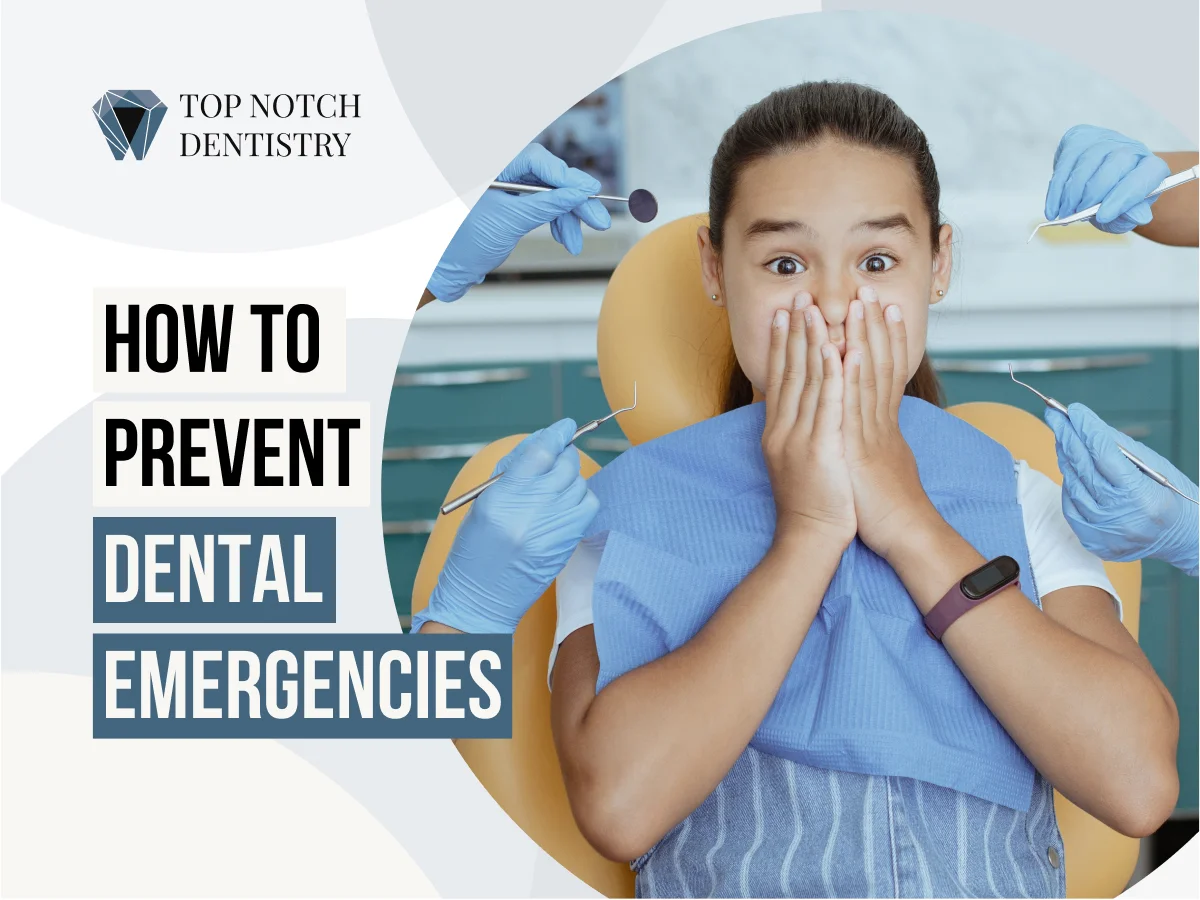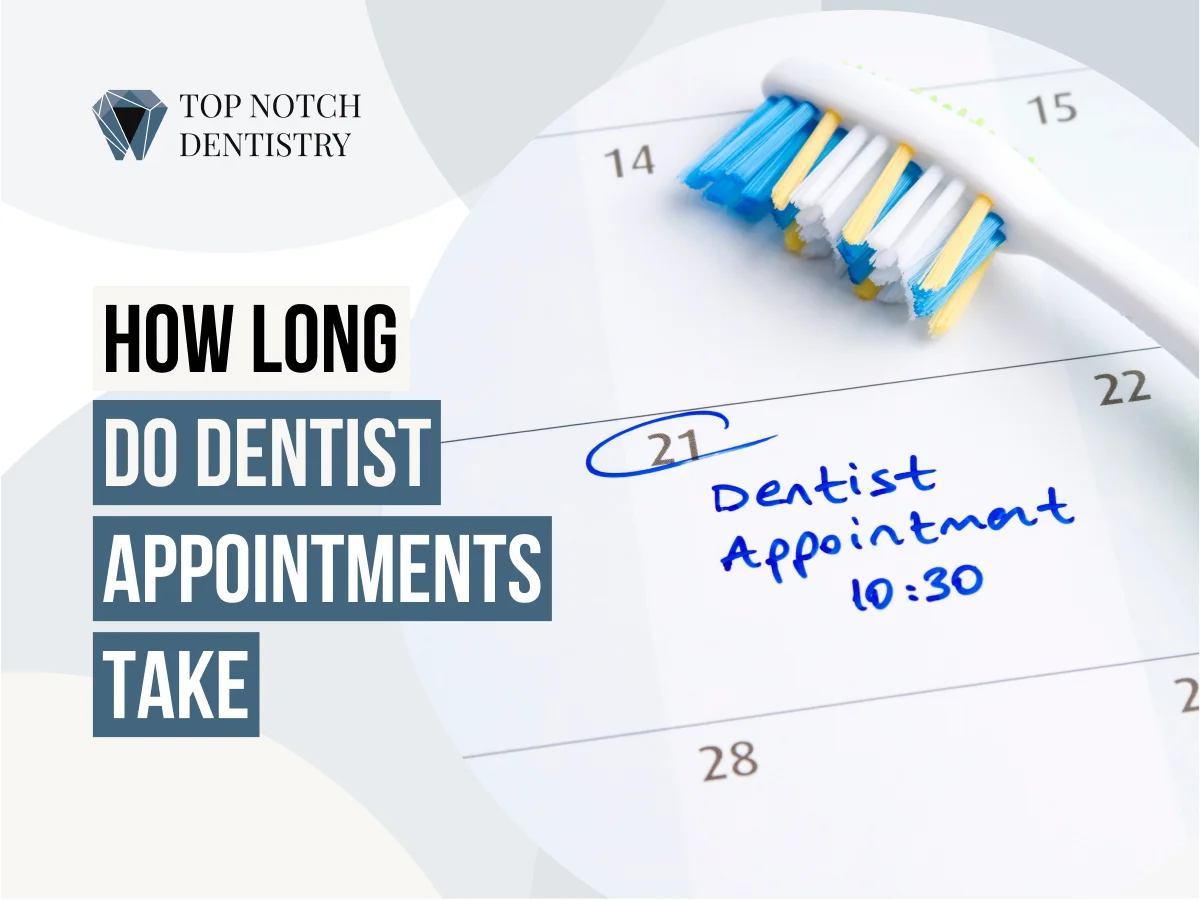
Many people only think about visiting the dentist when something goes wrong—whether it’s a toothache, bleeding gums, or sensitivity. However, routine dental visits are key to preventing these issues in the first place. Regular dental checkups not only help ensure a bright smile, they also protect your overall health, catching problems early before they escalate into costly and painful conditions.
But how often should you see a dentist? The answer, unfortunately, isn’t one-size-fits-all. From general guidelines to personalized recommendations based on your dental health, this article will help you understand how often you should see a dentist. You will then be able to make informed decisions to maintain your oral well-being and keep your teeth in top shape. Keep reading to learn more.
General Recommendations for Dental Visits
Regular dental visits are essential for maintaining optimal oral health. It’s generally recommended that most adults should see a dentist every six months for routine dental checkups and cleanings. However, older individuals and those with conditions, like gum disease or a history of cavities, may need a dental check up more frequently—potentially every three to four months.
If you have children, you should aim to schedule their first dental visit by their first birthday, with follow-up visits every six months as their teeth develop. This helps prevent common dental issues while encouraging proper oral hygiene habits at a young age.
So, when was the last time you sat in a dentist’s chair? Whether it’s been a couple of years or so long ago you can’t remember, it’s not too late. By scheduling a dentist appointment and adhering to the above guidelines, you can confidently and effectively monitor your dental health, catch potential issues early, and ensure a lifelong healthy smile.
The Difference Between Dental Checkups and Dental Treatments
Understanding the distinction between routine dental checkups and dental treatments is crucial for effective oral health management. For instance, a general dental check up is typically conducted every six months, focusing on preventive care. During these visits, dentists perform comprehensive examinations, including X-rays and cleanings, to identify potential issues like cavities or gum disease before they escalate.
In contrast, dental treatments address specific issues that have already arisen. These may include procedures such as fillings for cavities, root canals for infected teeth, or periodontal treatments for gum disease.
While a dental check up aims to maintain oral health and prevent dental issues, treatments are necessary interventions to resolve existing problems. By attending regular general dental checkups and finding a good dentist, patients can ensure a proactive approach to their dental care.
Specific Circumstances That Affect Dental Visit Frequency
When answering the question, ‘How often should you get routine checkups at the dentist?’ We must consider that certain dental conditions and treatments require more frequent visits to monitor progress and ensure optimal care. While routine checkups are recommended every six months for most patients, individuals with specific needs may need to see their dentist more often. This includes:
- Periodontal Disease: Patients with gum disease often require visits to a periodontist every three to four months. These frequent checkups allow for the close monitoring of gum health and provide ongoing deep cleanings to prevent further damage to the gums and bone.
- Braces or Orthodontic Treatments: Those undergoing orthodontic treatments, such as braces, typically need to visit their dentist or orthodontist every four to eight weeks. Regular adjustments ensure proper alignment of the teeth and timely progress toward the desired outcome.
- Ongoing Dental Treatments: Patients with dental implants, crowns, or other restorative work may require additional visits during the healing and integration process. These appointments help ensure treatments are progressing smoothly and prevent complications from arising.
By recognizing these specific circumstances, patients can tailor their dental visit schedule to their individual needs, and if necessary, switch dentists to find the care that best supports their long-term oral health success.
Benefits of Regular Dental Checkups
Regular dental checkups offer numerous advantages that go beyond maintaining a bright smile. Here are some of the key benefits:
- Prevention of Oral Diseases: Routine visits help prevent common oral health issues like cavities, gum disease, and tooth decay. Professional cleanings and exams remove plaque buildup and identify areas of concern before they become problematic.
- Early Detection of Dental Issues: Regular checkups allow dentists to swiftly catch potential dental problems, including oral cancer, cracked teeth, and infections. Detecting these issues in their early stages ultimately ensures less invasive procedures and more effective treatments.
- Maintenance of Overall Health: Oral health is closely linked to overall well-being. Dental checkups can reveal signs of systemic conditions like diabetes or heart disease, helping patients address broader health concerns.
- Cost-Effectiveness: By addressing issues early, regular checkups can prevent the need for more expensive and complex procedures, saving time and money in the long run.
These benefits highlight the importance of consistent dental care in preserving oral and general health.
Do You Really Need a Dental Checkup Every 6 Months?
The customary recommendation to visit the dentist every six months isn’t just a guideline—it’s a key practice for promoting long-term oral health. For most people, a six-month checkup is sufficient to catch dental issues early, prevent plaque buildup, and maintain healthy gums. During these visits, dentists can spot problems like cavities, gum disease, or even oral cancer before they worsen, helping patients avoid more invasive and costly procedures later on.
However, some individuals may require more or less frequent visits, depending on their dental health. Those with excellent oral hygiene and no history of dental issues, might stretch their visits to once a year. But individuals with gum disease or ongoing orthodontic treatments may need to visit more often.
Ultimately, the six-month rule provides a solid foundation for preventive care, but a personalized approach based on individual needs and risk factors always works best.
Do You Really Need Teeth Cleaning Every 6 Months?
Teeth cleaning every six months is recommended for most individuals as part of a proactive approach to oral health. This is because professional cleanings remove plaque and tartar that regular brushing and flossing might miss, particularly in hard-to-reach areas. Without routine cleanings, plaque buildup can lead to cavities, gum disease, and even tooth loss over time.
For some, especially those with excellent dental hygiene and no history of gum disease, a yearly cleaning may suffice. However, individuals with periodontal disease and those at higher risk for dental problems should stick to the six-month schedule or even more frequent cleanings. The goal of regular teeth cleanings, after all, is not just to maintain a bright smile but to prevent serious dental issues and promote overall health.
What Stops People From Having Regular Dental Checkups?
Despite the importance of routine dental checkups, many people avoid regular visits for a variety of reasons. One of the most common involves dental anxiety and fear of procedures, possibly stemming from past negative experiences or discomfort with the dentist's chair. This fear often leads people to delay or skip appointments altogether.
Cost is another significant barrier, as some individuals worry about the expense of dental care, especially if they don’t have insurance. Even routine checkups can seem financially daunting for those on tight budgets.
A lack of time also plays a role, with busy schedules making it difficult for some people to prioritize dental appointments. Many patients also assume that they can postpone visits if they aren’t experiencing pain or any visible issues.
Finally, there’s a misconception that at-home care is sufficient, leading individuals to believe that regular brushing and flossing can replace professional cleanings and checkups. This mindset, however, generally results in undiagnosed issues, which may only surface when more serious treatment is needed. If you’re among those hesitant to make an appointment, learning what to do before going to the dentist can help ease concerns and make the process more comfortable.
How Often Should Toddlers Go to the Dentist?
Introducing toddlers to dental care early on is crucial for facilitating healthy habits and ensuring proper oral development. Here's how often toddlers should visit the dentist:
- First Visit: Toddlers should have their first dental visit by their first birthday or within six months of their first tooth appearing. This early visit helps dentists identify any potential issues and offers parents guidance on oral care for their child.
- Every Six Months: After the initial visit, toddlers should see the dentist every six months. These routine dental check ups monitor the growth of their teeth and gums, ensuring proper development.
- Special Circumstances: Toddlers can be at higher risk for dental problems due to issues such as thumb-sucking or pacifier use. If this is the case more frequent visits may be necessary to prevent or address potential issues early on.
Establishing a consistent dental routine helps toddlers develop healthy teeth and instills lifelong habits for maintaining good oral health.
Who Should Go to the Dentist More Often?
Certain individuals may need to visit the dentist more frequently than the typical six-month schedule, depending on their unique health needs and dental risks. People with gum disease, for example, should see their dentist every three to four months to closely monitor and manage the condition. Those undergoing orthodontic treatments, such as braces, also require more regular appointments to ensure the proper adjustment of their appliances and the alignment of their teeth.
Individuals with chronic conditions like diabetes or heart disease should prioritize more frequent dental checkups as well. These systemic conditions are often linked to oral health, and regular dental visits can help manage related complications. Pregnant women, whose changing hormone levels can affect gum health, are also advised to visit the dentist more often to prevent or manage pregnancy-related dental issues.
How Long Can You Go without Seeing a Dentist?
While it’s generally recommended to visit the dentist every six months, some individuals may wonder how long they can go without an appointment. Here’s a brief rundown:
- For Most People: Going beyond a year without a dental visit increases the risk of developing cavities, gum disease, and other oral health issues that may require more extensive treatment later on.
- Healthy Individuals: Those with excellent oral hygiene and no history of dental problems might stretch their visits to once a year without significant consequences. However, skipping beyond that could lead to undetected issues.
- At-Risk Individuals: People with gum disease, cavities, or chronic conditions affecting oral health (such as diabetes) should not go longer than six months without seeing a dentist. Delaying care could worsen their condition and lead to more invasive procedures.
- Signs You Shouldn’t Wait: If you notice pain, bleeding gums, persistent bad breath, or sensitivity, it’s crucial to schedule a visit immediately. These symptoms indicate potential problems that you shouldn’t ignore.
Although some individuals can go longer between appointments, routine checkups are essential for preventing and addressing dental issues before they become serious.
Why Do I Need Dental Checkups?
Dental checkups are essential for maintaining your oral health and overall well-being. During these visits, dentists can identify problems such as cavities, gum disease, and oral cancer in their initial stages, which are often painless. Consequently, early detection results in less invasive and more effective treatments, saving you discomfort, time, and money in the long run.
Professional cleanings during checkups also remove plaque and tartar buildup that regular brushing and flossing can't fully eliminate. This helps prevent tooth decay and gum disease, which can lead to more serious health issues, including tooth loss.
Additionally, as mentioned earlier, your oral health is closely linked to your overall health. This means that dental checkups could reveal symptoms of broader health problems like diabetes, heart disease, or infections, allowing you to take prompt action. In other words, regular dental checkups are a proactive measure to ensure long-lasting health and help prevent serious complications.
So, How Often Should I Visit the Dentist?
For most people, visiting the dentist every six months is the gold standard for maintaining optimal oral health. These routine checkups and cleanings help prevent cavities, gum disease, and other dental issues, catching problems early before they require more complex treatment. However, depending on your dental health needs—such as having braces, gum disease, or ongoing dental work, you may need to visit more frequently.
If you’re unsure how often to schedule your visits, Top Notch Dentistry of Dallas can provide expert, personalized advice based on your dental health history and specific needs. Don’t wait for problems to arise—schedule your next checkup with Top Notch Dentistry of Dallas today to ensure a healthy smile for years to come!


